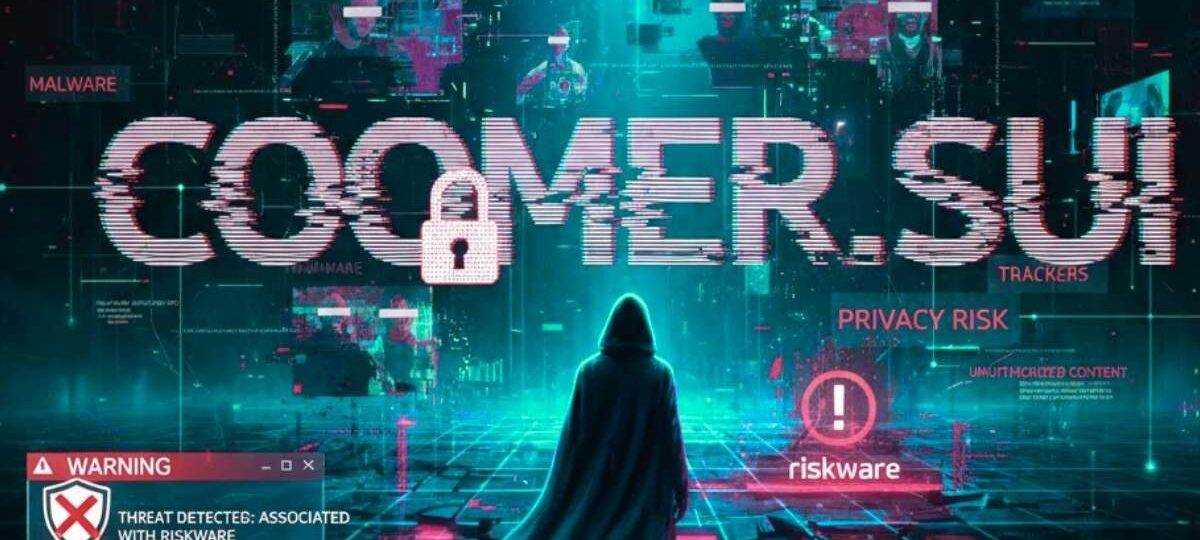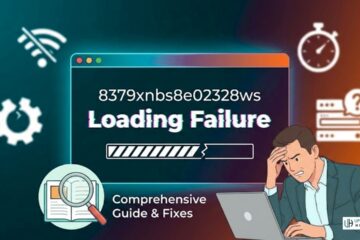Navigating the Digital Shadows: Understanding the Risks of Explicit Content Sharing Platforms and ‘Riskware’
The internet, a vast and complex ecosystem, offers an unparalleled wealth of information and connectivity. Yet, within its labyrinthine structure, certain domains and platforms operate in a space that brings significant digital risks. The domain structure “coomer.sui” or the closely related “coomer.su” often surfaces in online discussions, typically in contexts concerning explicit content sharing and associated security warnings. While the specific nature of a domain may fluctuate, the broader issues they represent—online security threats, ‘riskware,’ and the ethical considerations of content dissemination—remain critically important for every internet user to understand.
A key concept brought to light by discussions around domains like coomer.su is Riskware. Security firms, such as Malwarebytes, categorize such domains or the files they host as ‘riskware’ not because they are inherently a virus, but because they are associated with content that is often abused to share malicious files, or because the platform itself offers a risk to the user’s security and privacy. In the case of explicit content sharing sites, the primary offering—user-shared explicit materials—often serves as a lure. The real danger lies in the secondary elements: the lack of content moderation, the prevalence of unauthorized or non-consensual content, and the opportunity for cybercriminals to piggyback on the site’s traffic.
The Anatomy of Digital Danger: Beyond the Content
The security threats posed by platforms associated with explicit or low-moderation content are multifaceted. The most immediate concern is the potential for malware and other hostile software. Cybercriminals frequently embed malicious code within files that users might be eager to download, disguising trojans, ransomware, or spyware as legitimate images or videos. A domain flagged as ‘riskware’ is essentially a caution sign, indicating that the probability of encountering these hidden threats is significantly higher than on a professionally moderated or legitimate site.
Furthermore, the operational model of many such sites compounds the risk. They often rely on aggressive, misleading, or poorly vetted advertising networks. These networks can lead to ‘malvertising’—the use of online advertising to spread malware. A simple click on a pop-up ad, or even just loading a page, can trigger a drive-by download, compromising a user’s device without any further action. This vulnerability is especially pronounced on sites that prioritize traffic and content over stringent security measures.
Privacy and Ethical Implications
Beyond technical security, platforms dedicated to sharing explicit user-generated content present profound privacy and ethical dilemmas. For the user, simply visiting such a site can be a risk. These domains often employ invasive trackers to monitor user behavior, collecting data that can be used for targeted advertising or, worse, become part of a larger data breach. The risk of having one’s browsing history or personal information exposed is a significant consequence of navigating unsecure corners of the web.
More critically, for the individuals whose content is hosted, these platforms frequently operate with minimal verification or moderation. This lack of oversight makes them prime locations for the distribution of non-consensual content (often referred to as ‘revenge porn’). When a platform allows explicit material to be shared freely and anonymously, it contributes to the proliferation of content that can cause immense psychological and professional harm to the individuals depicted. A responsible internet user should understand that by visiting or engaging with such sites, they may be inadvertently supporting a digital ecosystem that profits from content shared without permission or ethical consideration.
A Framework for Online Safety
For the general internet user, the discussion around domains like coomer.sui or coomer.su serves as a crucial reminder of fundamental online safety practices. To protect yourself and promote a safer internet environment, a proactive approach is essential:
- Employ Robust Security Software: Utilize a reputable anti-virus and anti-malware solution, which can actively block known ‘riskware’ domains and prevent drive-by downloads. The warnings generated by this software, such as those flagging a site as “associated with riskware,” should always be heeded.
- Maintain Software Updates: Ensure your operating system, web browser, and all plugins are constantly updated. Security updates often patch vulnerabilities that malvertising and riskware sites are designed to exploit.
- Exercise Skepticism: Be inherently suspicious of any site that promises content for free but is riddled with pop-ups, redirects, or requests to download specialized players or files. The trade-off for “free” content is often your security.
- Prioritize Privacy: Use a Virtual Private Network (VPN) when accessing any content you’d prefer to keep private, and be cautious about clicking on links or logging in to external services from unsecure websites.
In conclusion, while the name “coomer.sui” may refer to a specific, perhaps fleeting, corner of the internet, the underlying issues—the nature of riskware, the threat of malware on low-moderation content sites, and the ethical stain of non-consensual material—are permanent fixtures of the digital world. The most effective way to navigate these digital shadows is through vigilance, a strong security posture, and a commitment to responsible and ethical consumption of online content.
See Also: Online Dating Safety: Tips for a Secure Dating Experience










